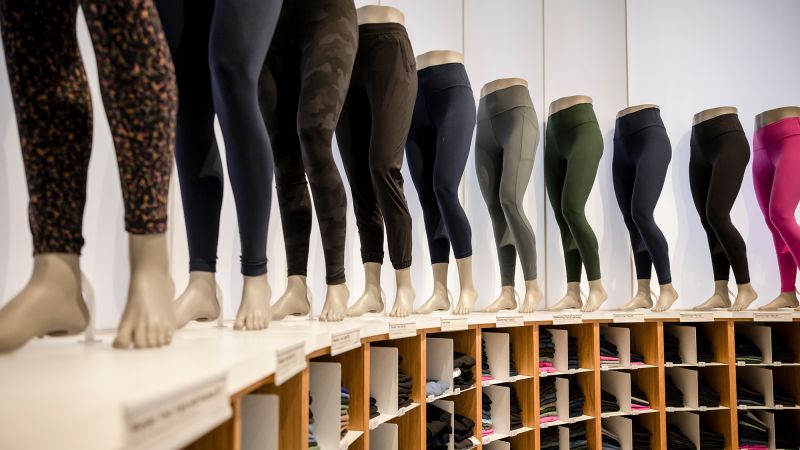Lululemon Athletica, the renowned athletic apparel company hailed for its premium athleisure wear, has escalated a legal battle against Costco Wholesale Corporation, asserting that the bulk-retailer is selling counterfeit versions of its flagship items, notably their $128 pants. The lawsuit, formally lodged on a Friday in a Californian court, underscores Lululemon’s frustration with what it perceives as Costco’s blatant infringement on its brand integrity and market position.
In the 49-page complaint, Lululemon articulates its allegations, accusing Costco of “unlawfully trading” on its goodwill, reputation, and the substantial effort (“sweat equity”) invested in cultivating its brand identity. The crux of the matter is the assertion that Costco’s own private-label line, known as Kirkland, is marketing products that bear striking resemblances to Lululemon’s designs, albeit at significantly reduced prices. These include a range of athleisure wear, such as pants, hoodies, and jackets. Lululemon argues that this situation misleads consumers into believing that these Kirkland-branded items are, in fact, affiliated with or produced by the legitimate Lululemon brand.
Lululemon’s efforts include detailed comparisons between its products and those sold by Costco, demonstrating a clear intention to highlight the design similarities juxtaposed against the stark price disparities. One conspicuous example presented within the lawsuit is the Lululemon Scuba hoodie, which retails for $118 compared to a similar item sold by Costco for around $8. Such discrepancies not only confuse consumers but also potentially erode Lululemon’s market share and brand value.
Costco has yet to respond publicly to Lululemon’s claims, leaving the retail giant’s stance on the matter unclear. However, in a statement provided to CNN, Lululemon emphasized its commitment to protecting its intellectual property rights. Being “an innovation-led company” that heavily invests in research and design, the company reiterated its proactive approach to legal enforcement against unauthorized use of its brand assets.
The lawsuit also draws attention to Lululemon’s contention that Costco’s selling of these “dupes” serves the purpose of misleading consumers. By creating a facade that these products are original Lululemon offerings when they are not, Costco might unintentionally or intentionally undermine the brand’s hard-earned consumer trust.
In seeking redress, Lululemon’s legal action aims to recover unspecified monetary damages, asserting that it is essential to recuperate the financial losses incurred due to Costco’s alleged infringement. Moreover, the company is urging the court to issue an injunction that would compel Costco to cease the sale of these disputed products, thereby protecting Lululemon’s brand integrity.
This is not the first time Lululemon has engaged in legal conflicts over its product designs. In 2021, the company entered into litigation with Peloton, accusing it of producing apparel that was too similar to Lululemon’s designs. Nonetheless, that dispute was eventually resolved when the two companies amicably reconciled their differences and embarked on a branding partnership.
In addition to the ongoing legal strife with Costco, Lululemon has also faced challenging economic conditions. Recent updates indicate that the company has revised its full-year earnings guidance, citing a “dynamic macroenvironment” characterized by declining foot traffic in U.S. retail stores. Moreover, rising tariffs and intensified competition from emerging athleisure brands like Vuori and Alo have further complicated Lululemon’s operational landscape.
As a reflection of these growing pressures, shares of Lululemon (traded under the ticker symbol LULU) have seen a significant drop of 37% throughout the year, raising concerns among investors about the company’s financial health and competitive positioning in the crowded athleisure market. Overall, the legal clash with Costco underscores a broader struggle that many established brands face in maintaining their identity and market share amidst growing competition and the prevalence of counterfeit products.











